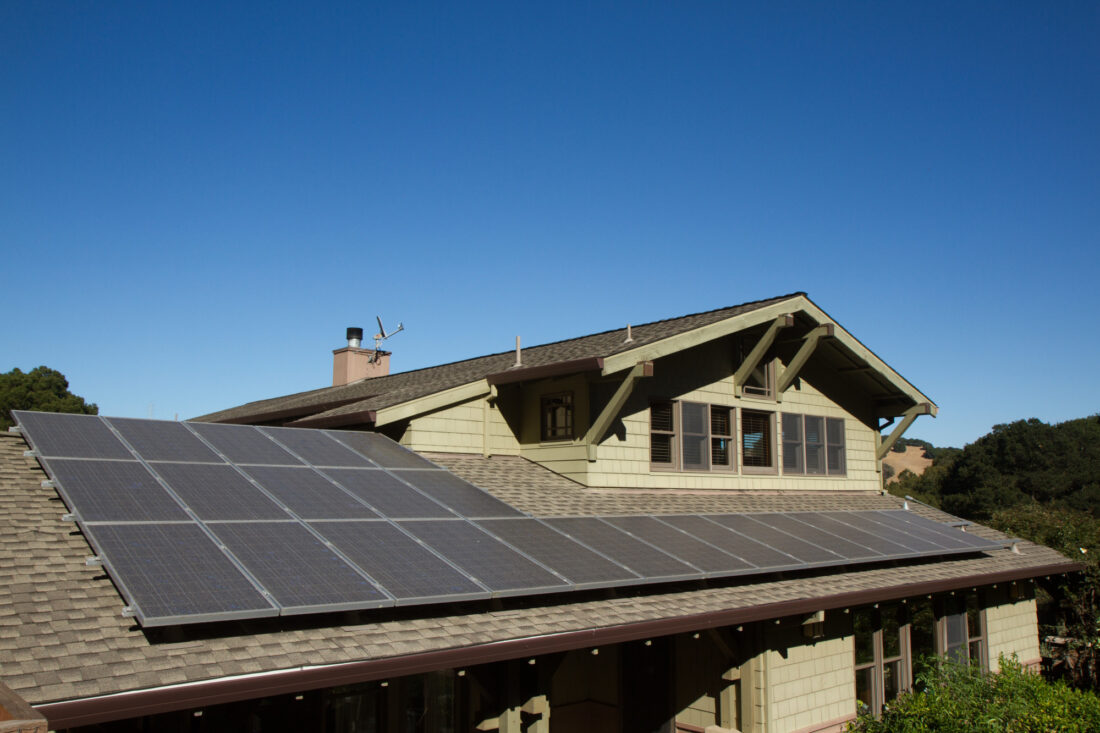How Much Money Will Solar Panels Save You in 2020?
 There’s been plenty of talk about solar power. The lure of free electricity is irresistible. However, if you’re considering installing solar panels, you can’t help but ask, “How much money will solar panels save you?”
There’s been plenty of talk about solar power. The lure of free electricity is irresistible. However, if you’re considering installing solar panels, you can’t help but ask, “How much money will solar panels save you?”
There are several considerably compelling reasons to go green with solar power. Many homeowners choose solar power for long-term savings. Solar power installation is an excellent way to save money on monthly utility expenses.
To learn how much money solar panels will save you, continue reading.
Table of Contents
Do You Really Save Money With Solar Panels?
Some things sound too good to be true. Yet, that’s not the case when it comes to solar power. It will, however, take you some time to recover your initial investment.
On average, United States consumers use up to 10,972 kWhs every year. That works out to around 914 kWhs each month.
The average cost of electricity is $0.1284 per kilowatt-hour. Resultantly, the average American home spends a little over $1,400 a year for electricity. What this statistic means is that you can save over $1,400 each year on electricity after you’ve recovered the cost of your initial investment.
Solar energy savings add up after months and years. After a couple of decades, you’ll have saved a considerable sum of money – much more than your initial investment. However, the amount of money you can conserve typically varies by state.
You do save money with solar power. The saving comes in the form of little to no electric bill every month.
Also, think ahead. As time passes, consumers use more and more electricity. Resultantly, you’ll save more as each year passes and you become more reliant on various devices.
How Much Money Will Solar Panels Save You?
When trying to calculate how much solar panels can save you, it’s helpful to think about how much electricity you use now, as well as what you will use in the future. The amount of power used by consumers varies by state.
In New York, for instance, the average consumer spends a little over $70 per month on electricity. Los Angeles residents, spend almost twice as much, paying around $130 a month for their electric bills. In Portland, however, the average consumer only pays approximately $55 a month for electricity.
Calculating solar power energy savings is a complex process. To begin with, you’ll need to make some assumptions.
Imagine that your solar power system produces 6 kW of electricity. Also, assume that your contractor installed it properly and there’s no shade blocking your panels.
However, you must also think about the fact that solar panels last a minimum of 25 years. It’s difficult to forecast market conditions two and a half decades ahead of time.
You’ll also need to estimate solar energy production. In this regard, you’ll have some help.
Researchers from National Renewable Energy Laboratories have created solar energy production estimates based on available climate data. Scientists regard the lab’s PVWatts solar production calculator as highly accurate.
Still, it’s difficult to forecast market conditions for electricity 25 years into the future. One quantifiable benefit, however, is that you’ll never have to worry about blackouts or brownouts because the city’s municipal power failed.
How to Calculate Solar Panel Savings
Utility prices change constantly. In some areas, electricity cost more. What’s worse, utility rate inflation rises steadily.
Because of these and other factors, it isn’t easy to forecast electrical costs. Any estimates are most likely inaccurate. Aside from knowing the average utility cost in your area, the only reliable known variable is the output of the solar system that you purchase.
Still, solar panels can save you between $10,000 and $30,000 for as long as they last. Once you recover your initial investment, you’ll no longer have to worry about paying an electric bill.
You can recoup your investment faster by applying for state and federal grants. The federal government and municipalities provide tax credits and grants to compel homeowners to install solar power.
Working With Solar Panel Cost per Watt
Now that you have figured out some base calculations, you can start to dive deeper into the math. After finding out the average local monthly kilowatt per hour usage, figure out that rate for the day in the month. To figure out daily usage, for instance, divide the average monthly usage by 30 or the average yearly usage by 365.
You must also consider the output of your solar power system. For this calculation, you’ll need to calculate the tilt angle of your roof and the azimuth.
You’ll also need to figure out the usable area for solar power installation. Also, you must figure out how much power a solar energy system will generate in your region.
For instance, the same system will generate 6,000 kW per hour in Boston and 8,000 kW per hour in California. For this estimate, you can use an online solar panel savings calculator.
You may consider trying to save money by installing a solar power system on your own. However, solar power is still electricity.
It can prove dangerous to install the system yourself unless you’re a trained electrician. Accordingly, it makes sense to research area service providers and find a highly recommended home solar installation contractor.
Tracking Residential Solar Panel Cost
While it is difficult to evaluate exactly how much you can save with solar power, one thing’s for certain – electricity will keep getting more expensive. Accordingly, many homeowners opt for solar energy based on this fact alone. Furthermore, you can save money on installation costs by applying for incentives, such as:
- Cashback • Expedited permits • Fee waivers • Grants • Property tax exemptions
Once you install your system, in a sense, you own your own utility company. Accordingly, it’s a good idea to stay on top of various trends regarding electrical utilities.
For example, keep an eye on trade prices. Government policies often impact the cost of utilities, affecting how long it takes you to recover your initial investment in solar power. Still, if you’re going to invest in solar energy, it’s better to do it sooner rather than later once the cost of electricity increases.
Learn More About Building Your Best Home
Now you know the answer to the question, “How much money will solar panels save you?” – but wait, there’s more to learn!
Every time you look around, it probably seems like there’s another improvement that you can make to your home. When considering a home upgrade, knowledge is key.
Bookmark the LivesOn.org DIY/ Home Improvement section for the latest tips and ideas for improving your home.









